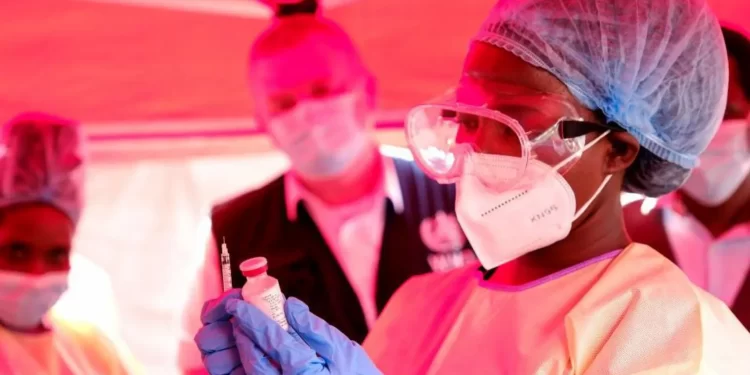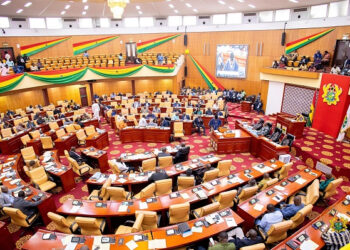Uganda has launched a trial of a vaccine against the Sudan strain of the Ebola virus, following an outbreak in the country that has killed one person and infected two others.
The first patient, a 32-year-old male nurse, died last week.
On Monday, the initial participant in the trial, who is currently in isolation, received a dose of the vaccine, which was developed by the International Aids Vaccine Initiative, a global non-profit organisation.
There is currently no approved vaccine for the Sudan strain of Ebola. One does exist, however, for the Zaire strain, which has been prevalent in the past in the Democratic Republic of Congo.
Symptoms of Ebola infection include fever, fatigue, muscle pain, headache, and sore throat, followed by vomiting, diarrhoea, rash, and internal and external bleeding.
It is transmitted through contact with infected bodily fluids and tissues.
The Sudan Ebola virus is severe, killing at least 40% of those infected, according to the World Health Organization (WHO).
Uganda is currently experiencing its sixth outbreak of the disease.
Forty contacts of the first victim of this outbreak will be vaccinated in this phase of the roll-out jointly conducted with the Ugandan authorities and the WHO, the UN agency said in a statement on Monday.
Uganda’s health ministry has confirmed 234 contacts as listed for monitoring.
The WHO is collaborating with Uganda’s ministry of health, the Uganda Virus Research Institute, and the Makerere University Lung Institute to conduct the trial.
“This marks a major milestone in public health emergency response and demonstrates the power of collaboration for global health security,” said WHO director for Africa Matshidiso Moeti.
“If proven effective, the vaccine will further strengthen measures to protect communities from future outbreaks.”
The previous outbreak of the Sudan strain in Uganda was confirmed in September 2022 and resulted in more than 70 deaths. It was declared over in January 2023.
Although Uganda had access to the same candidate vaccine at the time, trials could not be conducted before the outbreak ended.
Over the weekend, the first 2,160 doses of the trial vaccine and treatments arrived in the capital, Kampala.
Health authorities and research teams worked swiftly to prepare for the trial, including briefing researchers, arranging logistics and developing study protocols.
Read also: Trump threatens to cut funding for South Africa over land policy
Source: BBC



























